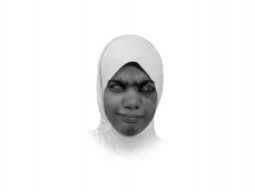
It is worth recalling that it is not the first time the CII has left many people stunned with its unexpected declarations. Many are of the opinion that it does not promote a progressive outlook — something the country urgently needs. One of its earlier controversial pronouncements that became news came in 2014 when the CII declared that laws barring child marriages in Pakistan were un-Islamic. The CII was also heavily criticised when it advised the government to amend laws that required a man to seek permission from his first wife before contracting a second marriage. Such regressive pronouncements, which do not help bring a positive change in society, have angered everyone. Moreover, such unnecessary and illogical recommendations embarrass the entire nation and people begin to question the purpose of the existence of the Council.
There is no denying the fact that issues of human rights violations are rampant in the country. From child marriages to acid attacks, there are copious types of domestic violence that we can find here. It is a fact that a democracy cannot progress unless women, who comprise around 50 per cent of the total population, are blessed with freedom to lead a professional life, participate in politics, and make decisions independently. While the CII’s anti-women recommendations show that it wants to prevent women from enjoying democratic liberty, these are also detrimental to the social fabric of our country. The Council's proposals are almost synonymous with promoting extremism, which has already done our nation a lot of harm.
Nonetheless, in these rough times, the CII should realise its responsibility to educate people instead of exacerbating the situation. It must also comprehend that such short-sighted proposals are likely to jeopardise Pakistan’s image abroad, in turn, giving rise to more trouble at home. However, while the CII has treaded on fault lines in proposing these controversial points, it must be encouraged and lauded whenever it highlights grave social evils confronting women. Calling for its outright abolition may turn out to be counterproductive as it has been known to give many sound recommendations as well. The Council recently stated that women have the right to own and bequeath property. It has advised the legislature to provide women with the constitutional right to own and bequeath property. If such a recommendation is adopted and provincial and federal assemblies legislate laws to protect property rights of women, very soon, women of the country could become independent, and thus able to play an important role in our patriarchal society. It is one of the foremost rights of a woman that she acquires a legal share in property, but that isn't the ground reality right now.
The CII has also stated that contracting a woman’s marriage for vani or dispute resolution is punishable. In Pakistan, we see daughters and sisters being married off without their consent in order to settle disputes. The UN Women website and Sara Zaman’s Prevention of Anti-Women Practices report published by Aurat Foundation in 2011 reveal that forced marriages are one of the gravest issues that plague our social fabric today. Undoubtedly, our resolve for women empowerment will be best manifested when we pressurise the government to adopt the CII’s recommendation as a law.
Countless cases of honour killings occur in the country every year. Just recently we saw the tragedy befalling Ambreen, who was drugged and burnt alive by a group of men in the name of ‘honour' in the village of Makol. The story has already died down. In this regard, the CII's call, declaring honour killings, karo kari and siyah kari un-Islamic and illegal is welcome indeed.
Instead of delving into hyperbole as to who should safeguard the rights of our women, shouldn’t we propagate impartiality and harmony to protect the social fabric of our society? Aren’t we already too late in implementing laws safeguarding the sanctity of women, by plunging into our national hobby of futile, unyielding debates?
Published in The Express Tribune, June 16th, 2016.
Like Opinion & Editorial on Facebook, follow @ETOpEd on Twitter to receive all updates on all our daily pieces.












COMMENTS (5)
Comments are moderated and generally will be posted if they are on-topic and not abusive.
For more information, please see our Comments FAQ